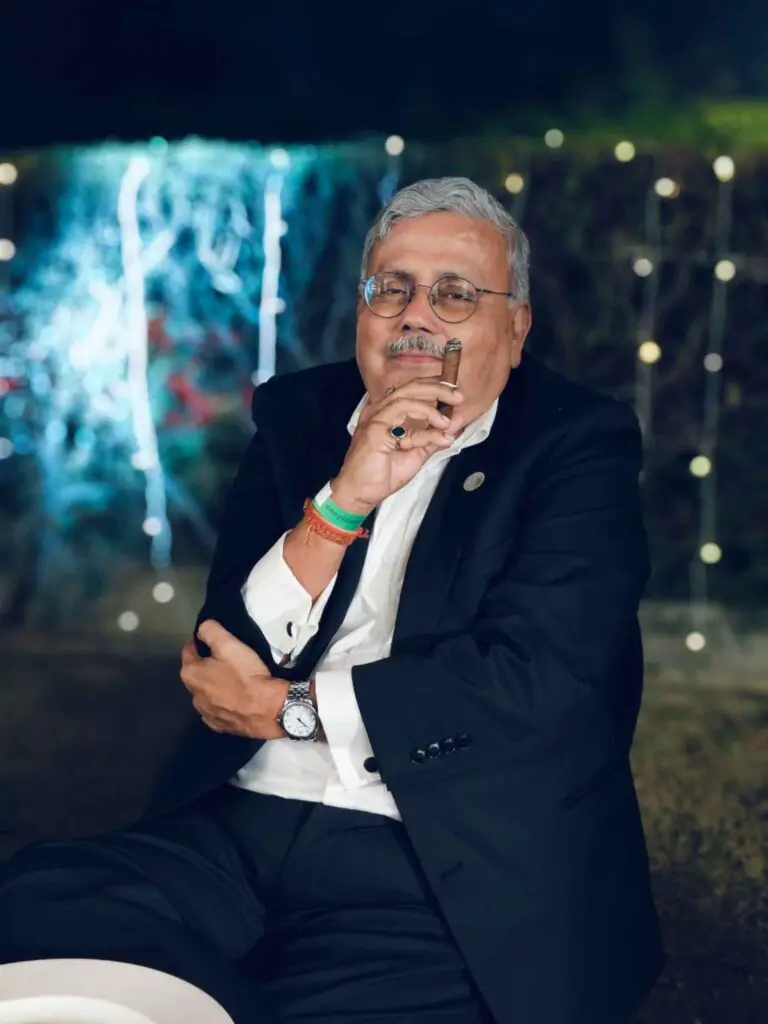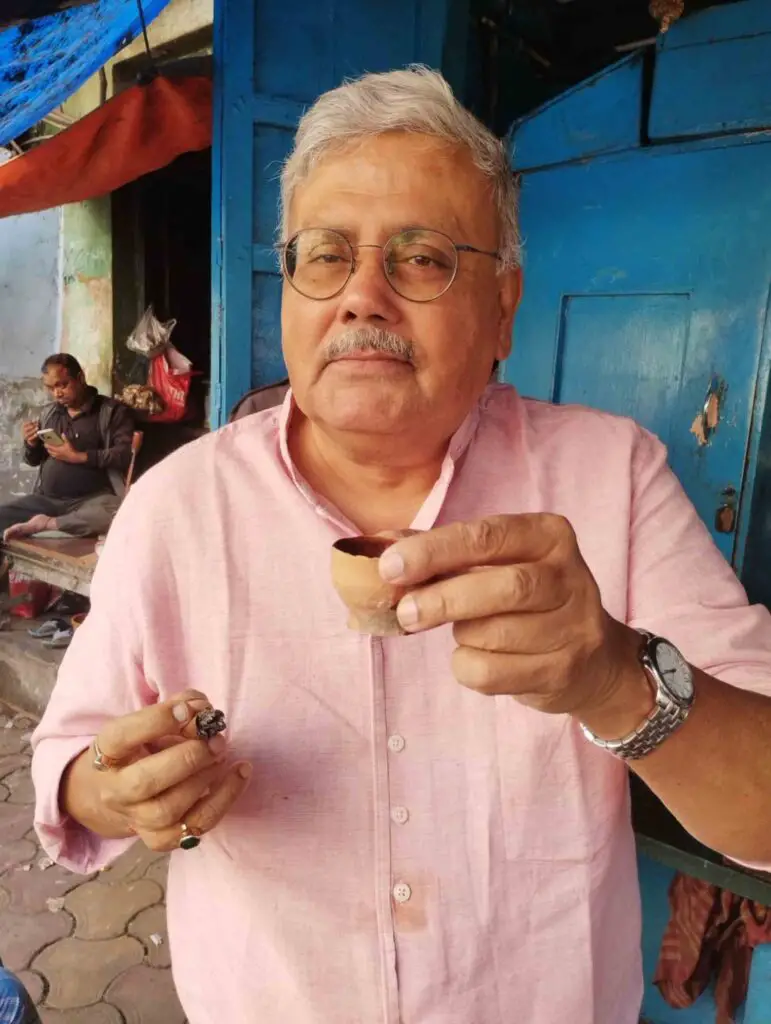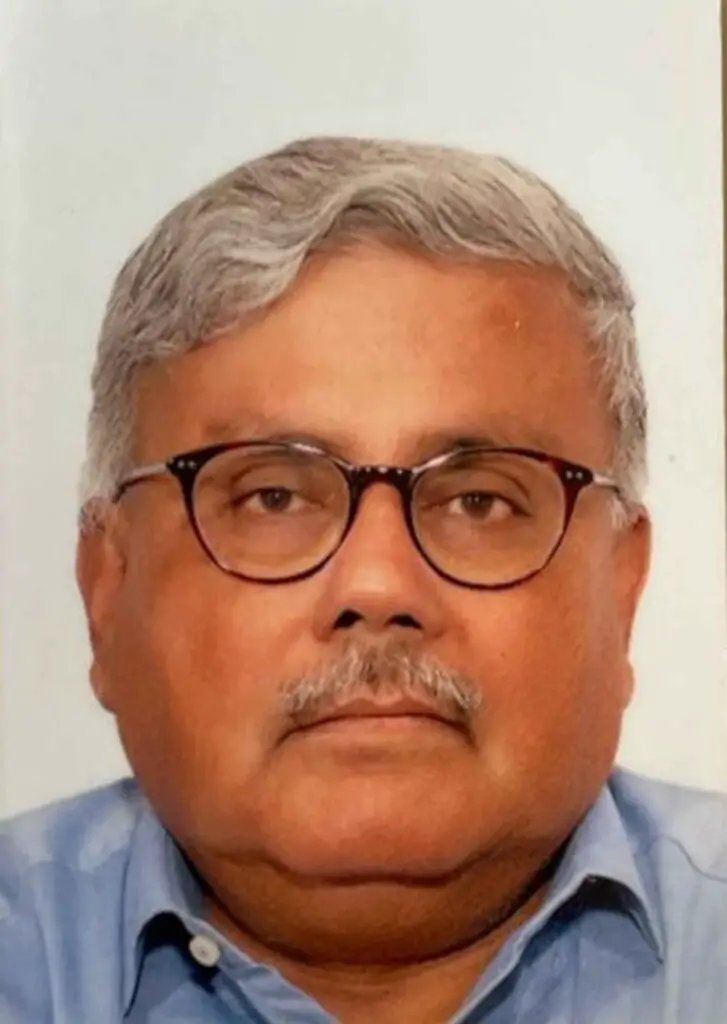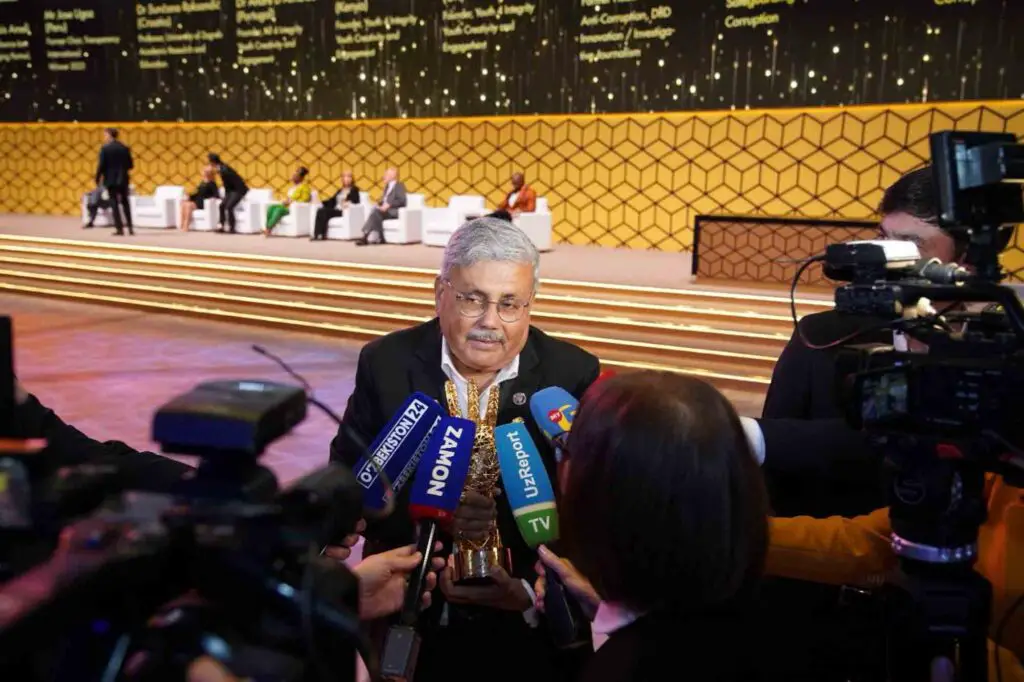News agencies are often seen as stepping stones to bigger careers, but for Shantanu Guha Ray, who had already worked for some of the biggest names in the business, working for an agency meant freedom to do the stories he wanted.
Shantanu was, until his death last weekend, the New Delhi-based Asia editor for Central European News, a role he held for more than a decade until his recent death.
It has left a huge void, because despite the time zone differences, he seemed to be always online, always filing, always available.
I spoke to him about his legendary workload only last week after he’d picked up yet another industry trophy for his cabinet, and he replied: “We are journalists, Mike, don’t worry.
“We are in the trenches together and I know how difficult it is getting to push the scales high.
“But we keep doing it. I reminded myself when I picked up that award. We are the last of the Mohicans.”
The next day, his daughter called me to tell me of his sudden passing. He was only 62.

Earlier this year, he had returned from being “treated like royalty” as he was flown with his wife Keya to receive yet another journalism award – the International Anti-Corruption Excellence Award for a series of articles on corruption in cricket at the start of January.
He said: “We were picked up from the airport in a limousine and put up in a great hotel. My wife loved it. She’s the one that made it all possible, she and my daughter, by supporting me and putting up with me in pursuit of my passion.”
Locals recall how he would often be seen sitting and discussing his latest plans with his wife in the window seat at their home in New Delhi. The most recent was plans for a trip to Gaza to follow up a story, a plan that will now never happen.
Other investigations into the trafficking of sex workers and cattle smuggling to Bangladesh have also been applauded.
He won the Crossword Raymond award for best non-fiction book, Target, in the business category, the Ramnath Goenka award for sports writing, the Laadli award for investigation into cervical cancer deaths in 2010, the Washington Press Club of America award for investigations into tobacco and asbestos also in 2010, and the Wash award for reportage on water crisis in 2008.
His scoop on the billion-dollar coal scam, arguably India’s biggest scandal to date, and the irregularities in the deal between the Airports Authority of India and the GMR-led Delhi International Airport Limited for a lease of land changed the way politicians work.
Between the books and documentaries, he still found time to file a daily stream of story ideas from the Gmail address that I always felt defined him perfectly – ‘shantanunewshound’.
I once heard him describe himself as a “hyperactive journalist”. If anything, it was an uncharacteristic understatement.

Just last week, we added four more investigations from him into our editorial system.
A café that’s become a haven for acid attack survivors snubbed by Hollywood stars when they visited the nearby Taj Mahal.
Or attacks by desperately endangered tigers due to a loss of habitat. Then there were plans for the world’s largest wildlife century in India and another about people waiting for death in the city of Varanasi on the banks of the Ganges who believe cremation is the route to salvation.
His was a life dedicated to journalism and his family.
After graduating with a Master’s in journalism from the Indian Institute of Mass Communications, he got a desk job working for United News of India, where he felt shackled to a desk and longed to be on the road. He left for a succession of jobs around the country, always taking his family with him.
He eventually returned to New Delhi in 1998 and took a job with ESPN, which quadrupled his salary and allowed him to indulge his passion for cricket.
But he walked away from the fat salary when ESPN lost the licence to cover cricket, and suddenly, he and his reporting team had very little to do.
He said: “We sat around eating burgers all day long. That wasn’t for me.”
Other high-profile jobs followed at the Indian Times and CNN IBN run by the Indian broadcasting company, mostly as an editor for business, sport and features.

In many ways, CEN and Shantanu were a perfect mix, as he was free to cover the stories wherever they were and whatever they were. Human interest, weird world, investigations, books, exposes, it didn’t matter to him. He dispatched them all and still kept coming.
I once heard him explain it by saying: “It could be about the son of a sex worker who gets a chance to play on the junior team of Manchester United.
“It could be a story of how cow urine is now being sold online, or it could be a story about how Godmen in India, or gurus, are getting popularity by amassing huge wealth.
“So they’re not routine stories. You have to write it differently. You have to go and fetch the details.
“Those are stories you don’t find in news conferences or public address systems. These are stories where you have to do original reporting.”
He worked with GRN and paydesk, the global network of news professionals, for 20 years. Owner Henry Peirse told Press Gazette, “Shantanu embodied everything that is a hardworking, straight-up reporter. He was a beacon of light.
“Always on it and always in it. Nothing passed him by and everything was there for the asking. He will be sorely missed.”
Fellow Indian media professional Swati Bhattacharya was one of the many who paid tribute online saying: “How does one write about a man like Shantanu Guha Ray? He was a man with a heart the size of Atlantis, a man who was passionate about everything he did.
“He was the life of every party, a man who cared too much, was generous to a fault, and a man who has now left all of us heartbroken with a huge void in our lives.
“The investigative stories he delved into, researched and wrote that most of the journalists would not touch, the books he spent months absorbed in writing that won him awards, the hours he spent mentoring young journalists, anything he touched left a deep indelible ‘Shantanu’ mark on them.”

She said that when he overheard her telling his wife Keya that she didn’t own a certain type of sari, he fixed that, too.
She explained: “The next morning, his driver delivered a package to my house. I opened it to find the most gorgeous sari I had ever seen.”
And in typical Shantanu style, his greatest headline may still be to come.
His soon-to-be best-seller expose book of corruption and kickbacks ‘Black Harvest: The India Coal Story’ will be published posthumously in a few months.



